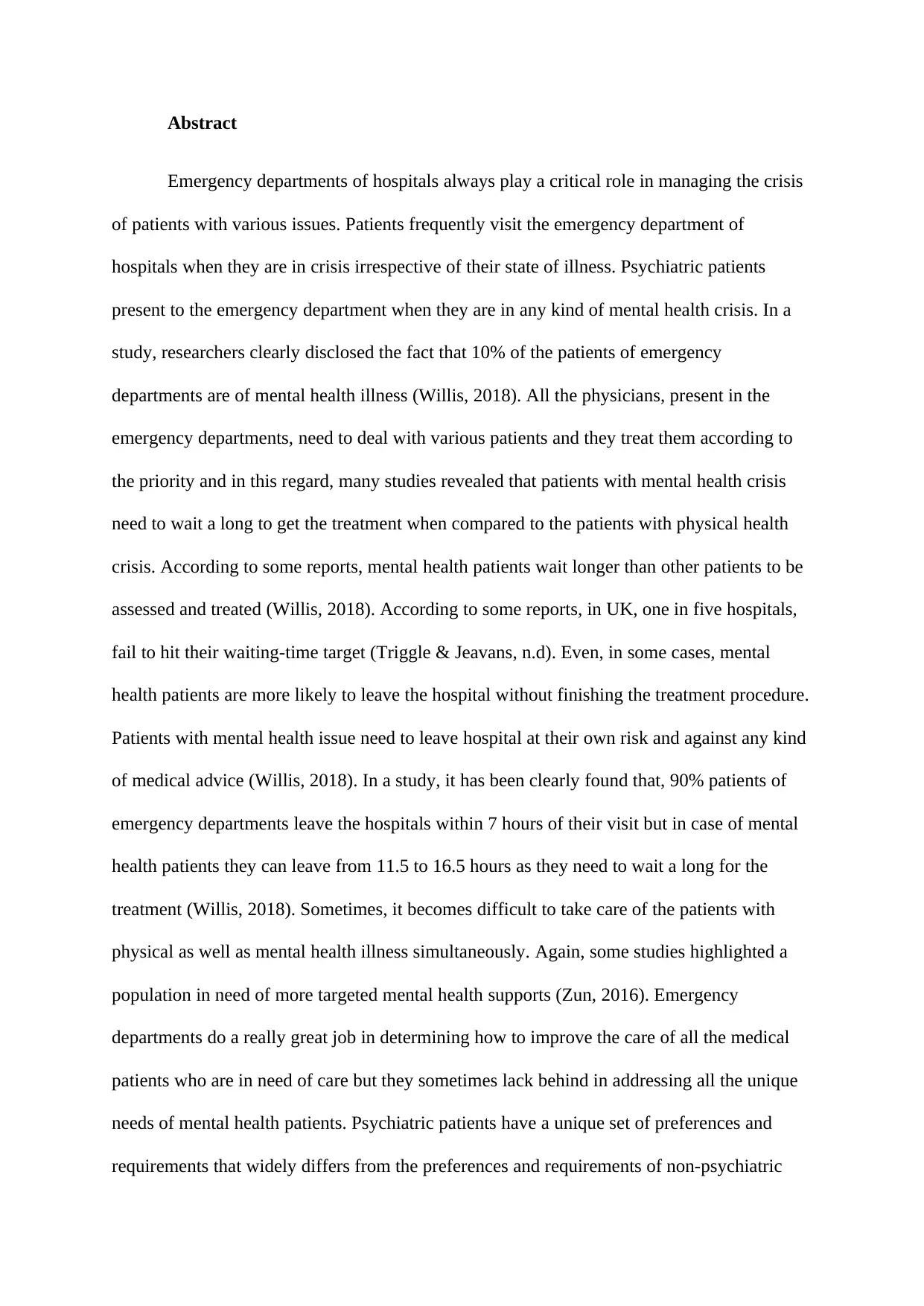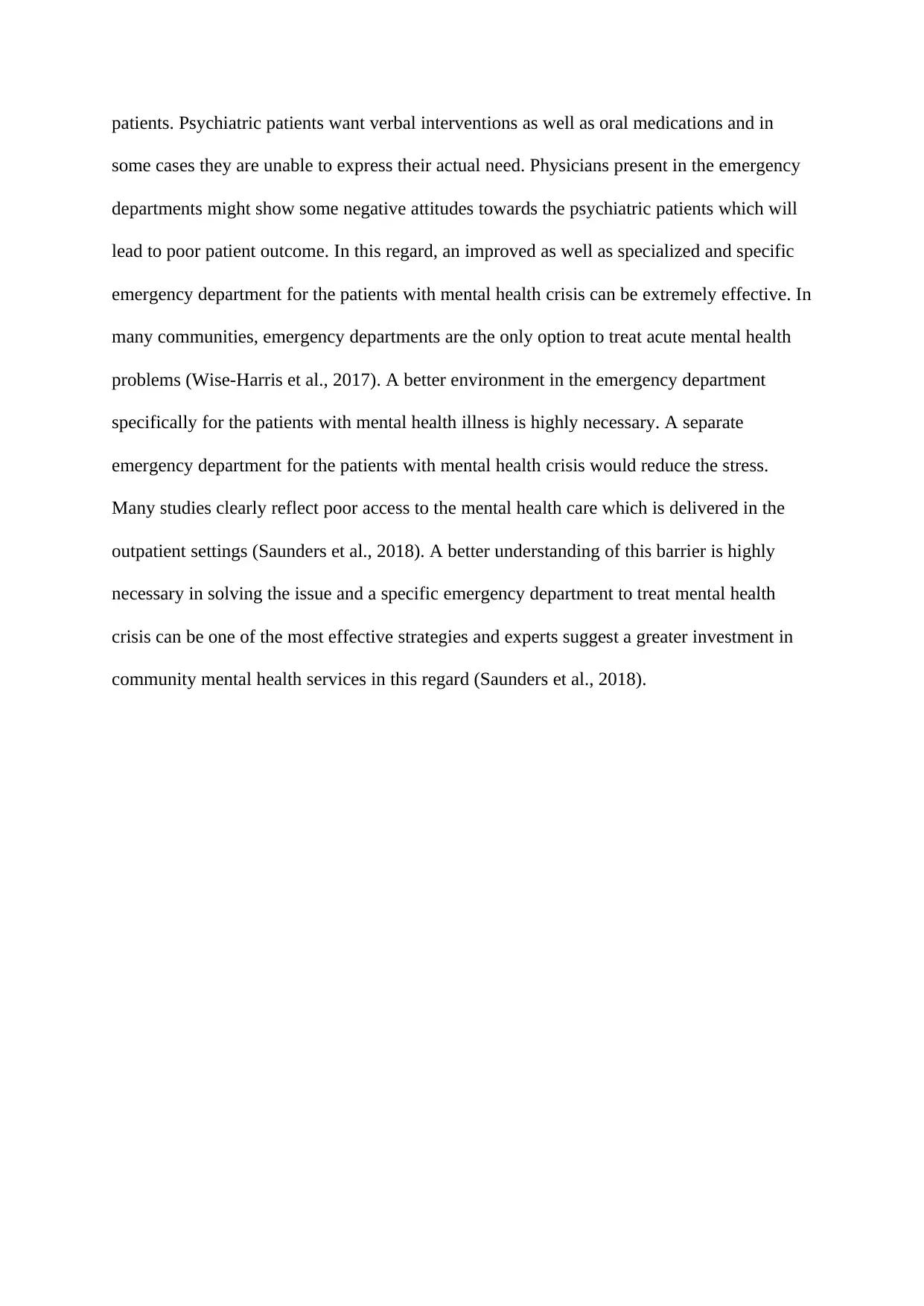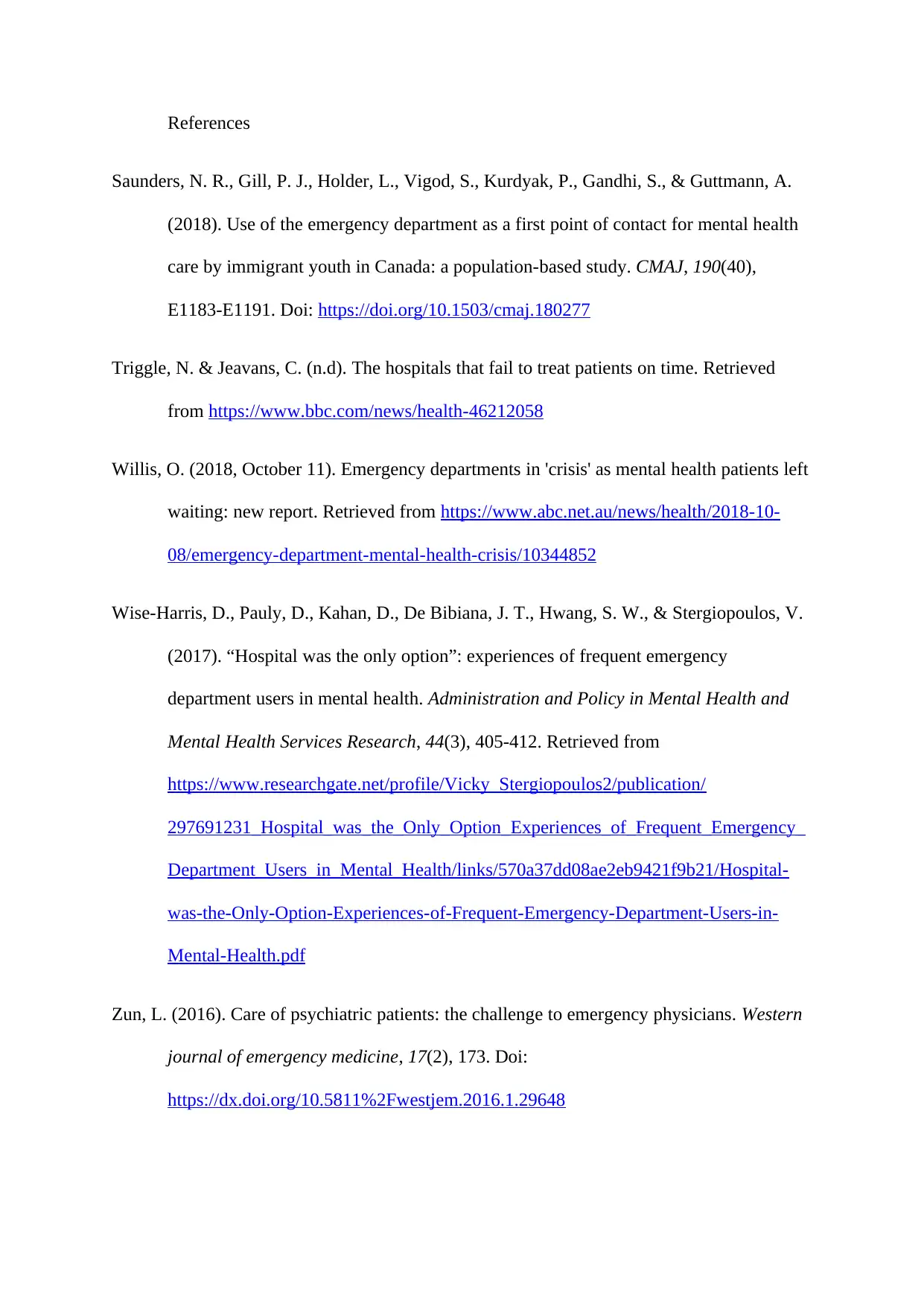Improving Care for Psychiatric Patients in Emergency Departments
VerifiedAdded on 2023/05/30
|4
|860
|136
Report
AI Summary
This report addresses the critical issue of mental health patients in hospital emergency departments, highlighting significant challenges in providing timely and appropriate care. The study reveals that these patients often experience prolonged wait times compared to those with physical ailments, leading to potential negative outcomes, including patients leaving before treatment is completed. The report emphasizes the unique needs of psychiatric patients, who may require verbal interventions and are sometimes unable to articulate their needs effectively. It suggests that emergency departments are sometimes ill-equipped to address these needs, and proposes the development of specialized emergency departments to reduce stress, improve access to mental health care, and provide more effective treatment strategies. The report references multiple studies to support its findings, advocating for increased investment in community mental health services as a crucial component of an improved healthcare system.
1 out of 4










![[object Object]](/_next/static/media/star-bottom.7253800d.svg)